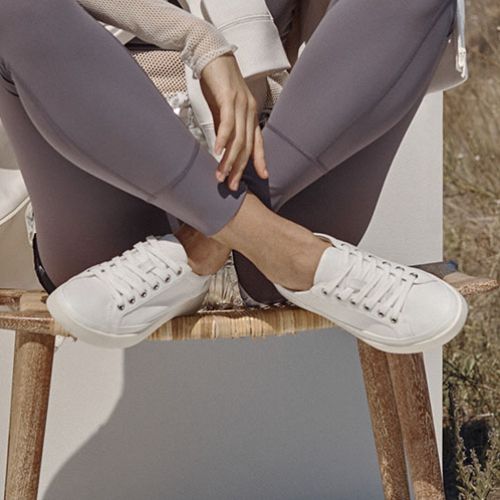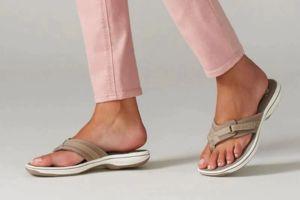Some people go most of their lives without knowing the comfort and support of a properly fitted shoe. According to the Journal of Foot and Ankle Research, 66% of people wear the wrong size footwear*.
I started selling shoes over a decade ago and made it my personal goal to educate shoppers on proper shoe fit. This proves to sometimes be a struggle. Too often I hear, “I only wear a size 8” or “I have never worn a size 10 in my life.” Several times I have pondered removing size tags or drawing a slight line to change a size 9 to an 8. Now, please don’t get me wrong, in no way are these thoughts trying to be deceitful, they come from wanting people to walk in comfortable, stylish footwear that properly fits them.
After reading this post, I hope you will have a better understanding of footwear sizing and the potential problems to wearing ill-fitting shoes. So, ladies and gentlemen, if you walk away with nothing else from reading this post, please remember this: It’s the fit of the shoe that matters, not the size. If the shoe doesn't fit, don't buy it.
When it comes to footwear there is no standardization on sizing. Sure, there are guidelines, but sizing can vary drastically from one brand to another and even from style to style within the same brand. If you think about it, it makes sense that brands cater to different foot shapes as it allows them to get their products on more customers feet. Ultimately, there is no point in taking the time to carefully select a shoe which offers great comfort, support and durability without ensuring a proper fit, because then all of these attractive benefits are lost.

I bet you never would have thought a store owner would suggest NOT to buy a pair of shoes. However, this does happen because I fully believe that fit is the most important factor in proper foot health. At my store, if we notice a poorly fitting shoe, we will let you know and suggest trying another size or style.
Why Does A Proper Fit Matter?
Besides discomfort and foot pain, improper fitting shoes can lead to many different foot issues including:
- Nail injuries (ingrown toe nails, swelling, redness)
- Bunions, Hammertoes
- Blisters, corns, callouses, or bruising
- Pinching nerves
- Athlete's feet
- Heel spurs, plantar fasciitis
- Leg, knee, hip, back, and neck pain or discomfort
And if these potential issues aren't enough, shoes often look really bad when they are the incorrect size. Unflattering gaping or slipping can occur if they are too big and bulging of the shoe or foot can occur in those that are too small. Poor fitting shoes also will wear out a lot quicker than they are intended to.
Shoe Fitting Tips:
- Don't be rigid on size. Did you know it is recommended to check your shoe size each year. Arches collapsing, gaining or losing weight, pregnancy, and aging can all impact the size and shape of your foot.
- Always try on both shoes. Very few of us have symmetrical feet. Almost everyone has a longer, wider foot – you may hear us at the store refer to this as the ‘bossy foot' as it is important to fit shoes based on the largest foot (adjustments can be made to fit smaller foot with fitting aids).
- Make sure you can wiggle your toes in your shoes. Your toes should never be pressed up against the edge of your shoe. As a general rule, we suggest at least a thumbnail width from the end of your longest toe to the end of your shoe.
- The ball joint of your foot, where your foot flexes, should align with where the shoe flexes.
- This is where the arch length becomes important. People can have the exact same length of foot but require different shoe sizes based on their arch length.
- Be mindful of frequent trouble spots or uncomfortable pressure points around the ankle, ball-joint, instep (top of foot) etc. Take the time to walk around in the store and see how your feet feel in them.
- Shoes should be comfortable in store. While some leather shoes relax or stretch with wear, this only occurs across the width. If you're advised a shoe will stretch, make sure the length is correct and that they feel snug, not tight.
- There should be minimal heel lifting in a shoe as the foot stretches when you walk and needs room to accommodate this. For a proper fit, your heel should not lift more than 3/4 of an inch.
- If possible, try on shoes at the end of the day as this is when your feet will be at their widest.
- While trying on shoes, wear the same type of socks you intend to wear most often in them.
Thank you so much for reading! Hope you found this informative. Please don't forget to leave a comment below and subscribe to our newsletter.
*Credit:https://jfootankleres.biomedcentral.com/articles/10.1186/s13047-018-0284-z



